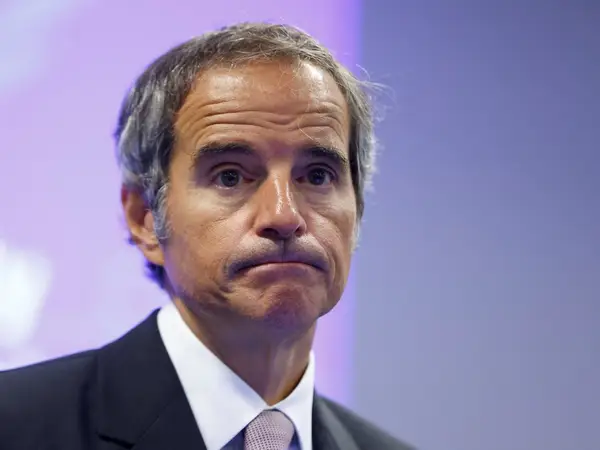Rafael Mariano Grossi, head of the International Atomic Energy Agency, has denied Iran’s claim the agency has flouted its technical role by acting politically.
“I live under political pressure,” Grossi told a press conference in Vienna Monday on the first day of an IAEA governing board quarterly meeting.“The thing is what I do with that pressure…I’m not offended, they are pushing their national interest in the way they see it…I have an international mandate, I am not here doing what I want but what I must.”
Grossi rejected Tehran’s charge that the IAEA overstepping its role by pursuing enquiries into nuclear work carried out by Iran before 2003. Tehran has said that the agency produced a final report in 2015 but then revived its interest only after allegations made in 2018 by Benjamin Netanyahu, then Israel’s prime minister.
“This issue is very straightforward,” Grossi said. “We found [in inspections after 2018] traces of uranium in places that were never declared [as nuclear-related sites]…We are asking questions. Explain to me how this is a political use of my authorities. This is what the IAEA is supposed to do.”
The IAEA enquiry has become bound up in talks, currently paused, to revive the 2015 Iran nuclear agreement, the JCPOA (Joint Comprehensive Plan of Action), as Tehran demands the probe be dropped. The United States and three European states – France, Germany, and the United Kingdom; the ‘E3’ – have stressed Iran must satisfy the agency over the uranium traces regardless of the fate of the JCPOA.
‘Everything is interconnected’
“Everything is interconnected,” Grossi noted. The IAEA chief pointed out that reviving the JCPOA, by boosting agency access, “could facilitate us getting to broader conclusions” over Iran’ nuclear program. “Frankly, the information gap is bigger and bigger and bigger,” he said. “We don’t want to sound dramatic, but the reality is that it’s going to be extremely difficult, and we will have to work very hard, and Iran will have to be very transparent…”
Grossi accepted that his contacts with senior Iranian officials had diminished in recent weeks, despite Iran’s diplomatic representation at the IAEA headquarters in Vienna: “We were used to having an intense dialogue, including with [leading politicians in] Tehran, and I hope that dialogue will resume. …without it being resumed in that way it’s going to be very difficult. We have to see eye to eye, and work together.”
In Berlin, Israeli prime minister Yair Lapid said Monday, at a joint press conference with German Chancellor Olaf Scholz, it was time to move beyond failed negotiations, repeating his suggestion Sunday that talks to revive the JCPOA were dead.
Scholz said it was regrettable that Iran had not “as yet” responded positively to European Union proposals, circulated August 8, aimed at successfully concluding the JCPOA talks. The past four weeks have seen messages, mediated by the EU, between the US and Iran that have failed to bridge differences over what is required to revive the 2015 agreement, which the US left in 2018 prompting Iran to expand its nuclear program beyond JCPOA limits and to limit IAEA access.
